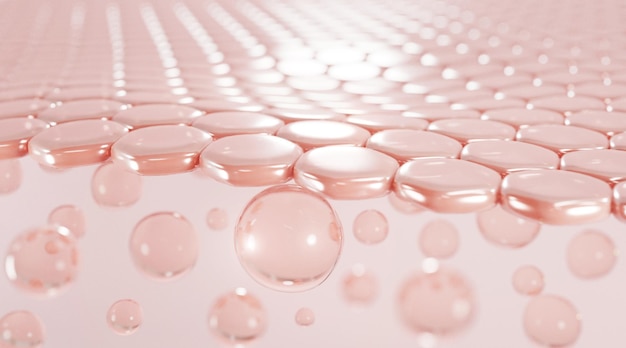
What Is Prebiotic Fiber?
Although the term “prebiotic” was coined in 1995, prebiotics themselves have been around for much longer. Prebiotics are a type of indigestible fiber found in some fruits, vegetables, and starches. They serve as food for the beneficial bacteria in the gut. It’s important to note that while all prebiotics are fibers, not all fibers are prebiotics. To be classified as prebiotic, a fiber must:
– Resist digestion and absorption in the upper gastrointestinal tract.
– Be fermented by intestinal microflora.
– Selectively stimulate the growth or activity of beneficial intestinal bacteria.
You Can’t Have Probiotics Without Prebiotics
Prebiotics and probiotics have a symbiotic relationship. Prebiotic fiber is the primary food source for probiotics, which cannot thrive without it. When you consume a probiotic supplement or food containing prebiotic fiber, both end up in the gut, where probiotics consume the fibers, allowing beneficial bacteria to flourish. Without prebiotic fiber, probiotics are less likely to thrive.
The Health Benefits of Prebiotics
Despite the relatively recent scientific exploration of prebiotics, significant findings have emerged regarding their health benefits.
Encourages Gut Health and Immunity
Prebiotics and probiotics together support digestive health. Prebiotic fiber is essential for a balanced gut, enhancing the immune system and reducing the risk of various gut conditions.
Promotes Bone Health
Prebiotic fiber enhances the absorption of essential minerals like magnesium and calcium, which are vital for bone health, especially in menopausal women.
Promotes Fat Metabolism
Prebiotics positively impact lipid metabolism, aiding in fat burning.
Helps Control Appetite and Weight Management
Studies in the British Journal of Medicine and the American Journal of Clinical Nutrition indicate that prebiotics help control appetite by increasing satiety hormones, making you feel fuller for longer.
Regulates Insulin Sensitivity
Research in The Journal of Nutrition shows that consuming 15 to 30 grams of resistant starch (a type of prebiotic fiber) daily reduces insulin resistance in obese and overweight men.
Sharpens Brain Function
Prebiotics are considered a type of “psychobiotic,” meaning they positively affect mental wellness through the gut-brain axis. They benefit gut bacteria that are good for brain health and mental well-being.
Brightens Mental and Emotional Health
Besides enhancing mental health, prebiotic fibers support normal mental and emotional health and stress response.
Promotes Restful Sleep
Regular consumption of prebiotics can improve both REM and non-REM sleep, particularly after stressful events.
What Are the Different Types of Prebiotics?
Prebiotics can be found in both food and supplements. Common examples of prebiotic fiber in supplements and foods include acacia gum, inulin, lactulose, lafinose, and various oligosaccharides like fructooligosaccharides (FOS), oligofructose (OF), galactooligosaccharides (GOS), transgalactooligosaccharides (TOS), polydextrose, psyllium, resistant starch (RS), and wheat dextrin. While there is some debate over which prebiotics are most effective, consuming any prebiotics along with probiotics or cultured foods is beneficial.
What Is a Prebiotic Supplement?
Prehistoric hunter-gatherers consumed many prebiotic-rich foods. If your diet lacks enough prebiotic-rich foods, supplements can fill the gap. Prebiotics are available as stand-alone supplements or combined with probiotics, known as synbiotics. Depending on your goals, you might choose a combination product or a pure prebiotic. A probiotic should be taken with a prebiotic (either as a supplement or food) to be effective, though prebiotics can offer health benefits on their own.
The Best Prebiotic Foods That Everyone Should Eat
As prebiotics are relatively new in the health and science fields, there’s debate over which foods qualify as prebiotic. Some experts believe any fiber-containing food could have prebiotic benefits. Here are some of the best-known prebiotic foods:
– Asparagus: Best consumed in its whole, fibrous state.
– Bananas: Offer resistant starch when slightly unripe.
– Chicory Root: Rich in inulin and often used by probiotic manufacturers, also a tasty coffee substitute.
– Garlic: Excellent for immune support and gut health.
– Jerusalem Artichoke: Known as “sunchokes,” these tubers are rich in prebiotic fiber.
– Leeks: Valued for their health benefits and prebiotic properties.
– Onions: Great for the immune system and gut health.
– Potato Starch: Common in natural food stores for its resistant starch content.
– Whole Grain Corn: Opt for organic, non-GMO, sprouted products.
– Whole Grains (preferably gluten-free): Such as oats.
Prebiotics are also abundant in breast milk, helping infants develop good gut bacteria and protecting them from infections.
How Many Prebiotic Foods Should You Consume Daily?
Your natural health care professional can help you determine the best diet plan for your health goals. Based on current research, it’s recommended to consume at least one or two prebiotic-rich foods daily for good gut health, in addition to a diet rich in fruits and vegetables. Simple ways to include prebiotics are eating soups with onions and garlic, substituting Jerusalem artichokes for potatoes, and adding bananas or resistant starch (like potato starch) to smoothies. Ensure your probiotic supplement includes prebiotic fiber.
Points to Remember
To sum up, prebiotics are essential for probiotics and are just as important for your gut health. Probiotics need prebiotics to thrive. Prebiotic supplements can be taken alone or with a probiotic, such as Global Healing’s Ultimate Probiotic, which combines 25 different probiotics with prebiotics to support your gut health, eliminating the need for separate supplements or specific foods in your diet.



